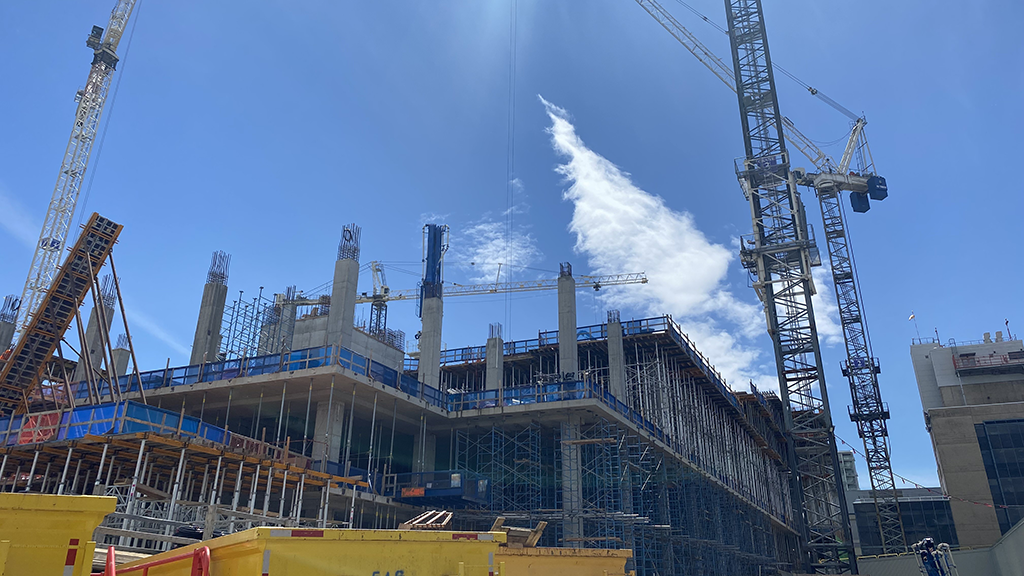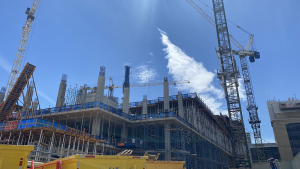B.C.’s move to enact prompt payment legislation as early as this fall comes on the heels of the B.C. şÚÁĎÉçion Association’s (BCCA) annual survey in which 91 per cent of respondents indicated they experienced a late payment once for completed work in the past year.
Sixty-nine per cent of those polled said they had not been paid for completed work over the past year.

While there is no causation between the survey results and the government’s decision to introduce legislation, the survey validates the “urgent need” for a prompt payment act, says Chris Atchison, president of the BCCA.
“It remains the number one priority for B.C. to resolve as it relates to the construction industry,” he says.
Atchison says he expects if legislation doesn’t come this fall it should be in place by spring 2026.
It is being developed under the direction of B.C.’s attorney general, with input from industry stakeholders.
B.C. lags behind Ontario, Manitoba, Saskatchewan and Alberta which have all enacted prompt payment legislation in recent years.
Atchison says the BCCA has provided the province with research on what works best in other provinces to help prepare the draft for the legislation.
He says work between the industry in Ontario and that provincial government in 2024 resulted in about 90 “small and significant” recommendations to improve legislation which was enacted in 2019 as part of amendments to Ontario’s şÚÁĎÉçion Act.
To ensure fairness in B.C., it is critical the legislation has no exemptions for public owners or the private sector, Atchison says, adding the act should also be consistent with legislation in other provinces.
“When we contextualize that with how we’re looking to harmonize our industry among other industries as a nation, this has been a blind spot that B.C. is now open to having a discussion about.”
Of the 1,300 respondents polled in the BCCA’s annual survey, 83 per cent were small to medium businesses, 78 per cent open shop and 64 per cent required employees to be credentialed. The survey was held from September to December 2024.
According to the construction association, the province’s construction industry accounts for 10 per cent of the province’s GDP – a 12 per cent increase over the past five years. The estimated value of current major construction projects is $158 billion, a decrease of seven per cent since fall 2024, but a 41 per cent increase over the past five years.
Atchison says in light of the “great uncertainty” around tariffs which will disrupt the supply chain and increase project costs, the association is advising its contractor community to be vigilant about understanding the language in their contracts.
While any new contracts should include clearly written tariff provisions, he says for their own protection members should speak to project owners about the language in contracts that predate the tariffs.
“We’re asking owners not to halt projects…out of fear of what might come. It is never going to be cheaper to build than it is right now.”
With expected announcements from the newly-elected federal government for major infrastructure building and all housing types, the industry has reason to feel “optimistic but cautious,” says Atchison.
“Where things are in neutral right now is hiring new people, aggressively recruiting new workers, which 18 months ago was the only thing besides prompt payment that anyone was talking about.”
The acute labour shortage is not going away but he says it’s no surprise companies are cautious about hiring because of the uncertain economic conditions ahead.
Aside from the usual tariff suspects such as steel, aluminum and manufactured wood, Atchison says many mechanical and electrical components also face tariffs.
“There will be ramifications right through the supply chain.”
He says the BCCA regularly posts updates about the tariffs on its website under the U.S. Tariffs page.





Recent Comments